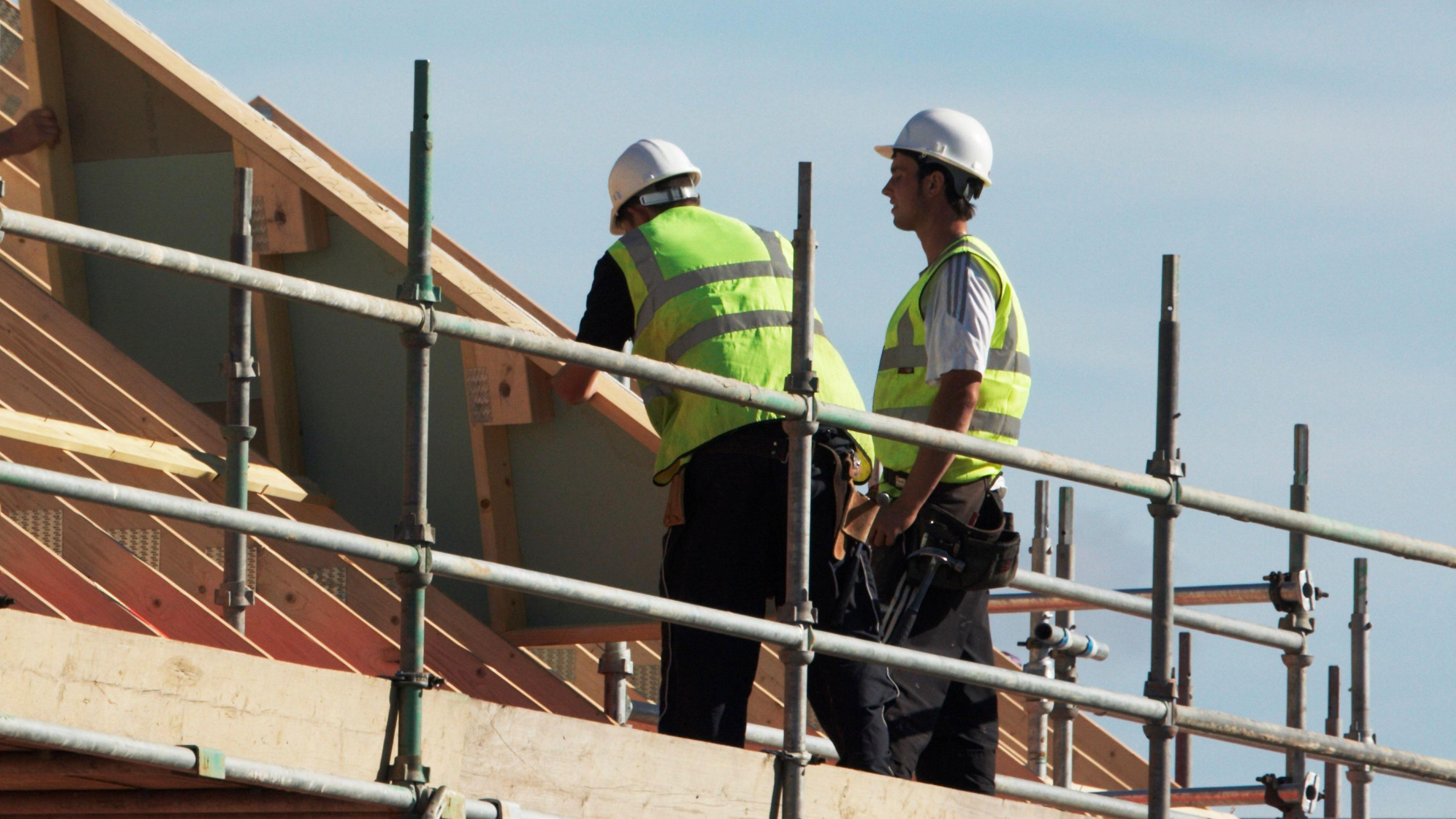Rayner sets new housing targets in planning overhaul

- Published
Angela Rayner has unveiled an overhaul of England's planning rules to help deliver Labour's promise of 1.5m new homes by 2029.
The housing secretary said local housing targets, watered down by the Conservatives in 2022, would become mandatory again.
She also laid out plans to make it easier to build on low-quality green belt land that will be reclassified as "grey belt".
Ms Rayner admitted her plans “won’t be without controversy” but changes were required to make housing more affordable.
But the Conservatives criticised the plans, adding they would force suburban areas to take more housing from urban Labour areas.
Housing targets to be diluted after Tory revolt
- Published6 December 2022
Reeves to bring back housebuilding targets
- Published8 July 2024
What is the 'grey belt' and how many homes could Labour build on it?
- Published30 July 2024
Under the plans, English councils will once again have to incorporate government-set housing targets into their long-term plans to allocate land.
Councils that previously failed to do so faced seeing their power to block new developments curbed.
But Rishi Sunak's government downgraded them by saying they should only be advisory, in a bid to put down a rebellion of backbench Tory MPs in late 2022.
Speaking in the Commons, Ms Rayner cited it as an example of the Conservatives “caving in to anti-growth backbenchers” and putting "party before country".
She added that new home starts were likely to drop below 200,000 this year, well below the previous government's overall 300,000 target.
Targets recalculated
Labour also plans to change how the targets are calculated, including by ditching a 35% "uplift" for the biggest urban areas introduced by Tories and tweaking how the formula accounts for housing affordability.
Official documents show the changes will mean councils overall will now have to plan for around 370,000 homes annually, instead of the current 305,000.
But some urban areas previously covered by the uplift, which are mostly Labour-run, will see their targets go down.
The annual quota for London, where the uplift currently applies to each individual borough, is set to drop from just under 99,000 homes to around 80,000.
Birmingham's target is set to drop from 7,174 to 4,974, and Coventry's will go down from 3,081 to 1,527.
Some of these councils have previously complained the uplift targets were unrealistic. Ms Rayner said London's figure would still be a "huge ask” and the previous target was "absolute nonsense”.
She admitted that some of the new targets would be "surprising" - but argued the old system had produced some “odd outcomes”.
However, the changes were criticised by shadow housing secretary and Tory leadership hopeful Kemi Badenoch, who said it would result in more uncertainty.
She also argued it could force suburban and rural areas to take housing from Labour-held inner city areas.
'Grey belt'
Elsewhere, the government has given more details of its plan to make it easier to build on certain parts of the green belt, protected land that surrounds bigger cities.
It has proposed that councils with green belt in their areas should review the boundaries if they cannot meet housing need "through other means".
New guidance will say councils should look to reclassify previously developed land, or land that makes only a "limited contribution" towards goals such as protecting countryside and the special character of historic towns, as "grey belt".
Officials said they could not say what proportion of the green belt, which covers 12% of England's land area, would be reclassified, with the final amount depending on the choices made by local authorities.
Development in grey belt areas will be subject to new "golden rules", including on the proportion of new homes that are classified as affordable.
Labour also plans to ditch a requirement for new homes to be beautiful, arguing it was too vague and had been interpreted differently in different areas.
The Greens called the planning shake-up a "distraction from Labour’s failure to step up and fund the real answers to the housing crisis, including large-scale investment in truly affordable, sustainable council housing."